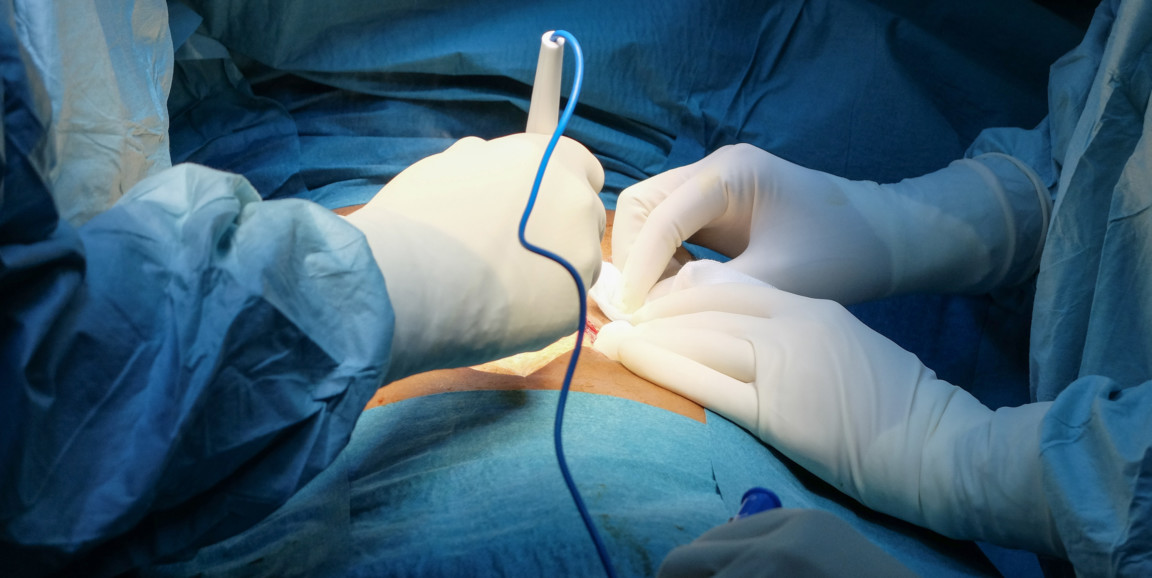I recently told a friend that medical school is changing me fundamentally as a person. This sounds dramatic, but there's truth to it. This program and education are successfully training my brain to think in new ways, sloughing off parts of who I was and adding new parts to who I will become. However, to my surprise, the experience has also resurfaced old parts of me that I had considered lost forever.
One of those old parts of my life, the first 20 years of which I was religiously Catholic, resurfaced while I recently shadowed in the operating room.
It was a few months ago when I had the privilege of "scrubbing in" to two back-to-back transplant surgeries. For those unfamiliar with "scrubbing in," it's exactly as you imagine from the scenes of Grey's Anatomy: Blue-capped and masked doctors wearing scrubs go to fancy sinks to carefully wash from fingers to elbows and then barge backwards into operating rooms with dripping wet forearms to meet a nurse who hands them a sterile towel.
In the heat of my excitement, moments away from standing at the foot of the surgical table, all I could think about was altar serving at church in the fifth grade: standing at attention with a saucer, a jug of Holy Water, and a small embroidered cloth draped over my arm. I aided the priest with the ritual of washing of his hands before communion.
In anticipation of the most interesting moment of my medical education to date, I thought of a memory I hadn't given attention to in years, and the association of these rituals struck me.
While learning how to scrub into surgery, it was made clear to me that the standard protocol to mitigate contamination is to hold my sterile-gloved hands in front of my chest and touch nothing. Holding up my arms in a frozen gesture felt unnatural, and the first thing I thought to do was clasp my hands together the way I was taught to pray.
Again, I was taken back in time to a moment in eighth grade when I found myself kneeling in prayer. A friend was dying from an undetected cancer, and all I thought to do was get on my knees and pray. In a moment of desperation, I found comfort in the clasps of my interlocking fingers.
In an attempt to follow the rules of the OR, and successfully touch nothing, again I thought of a spiritual ritual from my past. Praying or not, the motion itself comforted me.
Before the first surgery that morning, the third-year medical student explained to me that the patients in this scheduled surgery were relatives. The donor was giving up one of two healthy kidneys for transplant into the recipient, whose kidneys were failing.
After preparing the new kidney, we entered the second surgery with a new transplant surgeon. As I stood watching, gowned and gloved, over the sterile table, I couldn't believe my ears when the surgeon turned to me and said, "Okay, LoJo, I want you to hold the kidney while I suture it to the artery." I took a gentle hold of the small, ashen kidney, waiting for its blood source, and again, I thought of a powerful Christian metaphor-- one person's sacrifice gives life to another.
As I age and progress through decades of schooling, there are a lot of things from the life in which I was raised that I rarely think about and sometimes suppress in memory under the weight of all the "new" things I learn. However, no matter how new experiences seem to change me, certain experiences trigger memories and associations that might be fundamental to my entire life experience.
It might be that because of my experiences, I can't help but think of ritual handwashing as I scrub in, and I can't help but remember the solace of prayer hands when I clasp my hands together in the sterile zone.
I see ritual in many things because I was taught to ritualize so much of my life, and I like to remember that the associations I make might not be the associations that my peers or my superiors make. But whenever each of us scrubs into that room, we bring ourselves to the table, each life as vivid and complex as the next, and all sharing the same goal: to heal and help our patients.
Stanford Medicine Unplugged is a forum for students to chronicle their experiences in medical school. The student-penned entries appear on Scope once a week during the academic year; the entire blog series can be found in the Stanford Medicine Unplugged category.
Lauren Joseph, LoJo, is a first-year medical student from Arcadia, California. She graduated from Stanford in 2017 and spent one year working in San Francisco before starting medical school. She is thrilled to be back at Stanford. She loves cooking, reading, running, and laughing with friends and family.
Photo by Shutterstock




